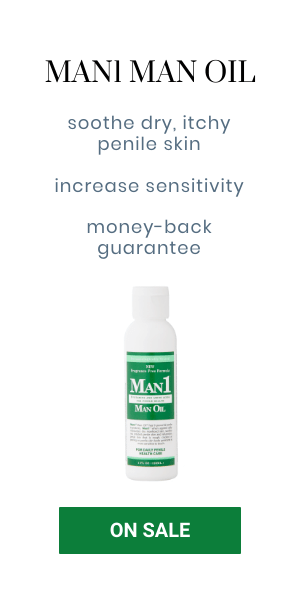Conduct a poll among men of their favorite kinds of sex, and oral sex would be right up there near the top. Indeed, for some men, oral sex is their number one choice. Its pleasures and appeal are obvious, but for those in non-monogamous relationships, the penis protection issue always arises when discussing forms of sex. There is debate over how much concern there should be about penis health when oral sex comes into play. So, should a guy take any steps in terms of penis protection where oral sex is concerned?
Risks
As with penetrative sex, oral sex does carry some risk of passing sexually transmitted infections (STIs) from one partner to the next. For example, if a man’s penis is orally pleased by someone who has an STI like chlamydia or gonorrhea in the throat, there is a significant risk that the STI will be passed on to that man’s penis. Similarly, if a man is orally servicing the penis of a man with an STI like chlamydia or gonorrhea on the penis, that STI can be passed onto the man’s throat. In the latter case, the chances of a man contracting the STI are increased further if he has issues such as bleeding gums or gum disease.
What about HIV? The risk of transmission is much, much lower through oral sex than through anal or vaginal sex; there are few reported cases, and some researchers suspect that some cases attributed to oral sex may actually have originated through anal sex. However, the official consensus is that while the risk of HIV transmission through oral sex is very low, it is still possible. It is further thought that the risk is even lower if there is no swallowing of ejaculate. As with other STIs, the risk of transmission is thought to increase if the person servicing the penis has poor dental hygiene, such as bleeding gums or gum disease.
Penis protection
Doctors recommend that condoms be used to decrease further the risk of transmission of STIs and HIV. However, in practice, it is thought that few men follow this recommendation. If such is the case, and if a man is sexually active outside of a mutually monogamous relationship, there are several things he can do to provide better penis protection. These include:
– Limiting the number of sexual partners with whom he is active. The greater the number of partners, the higher the risk of transmission.
– Partnering with others who limit their number of partners. Similarly, if the individuals a man partners with also limit their number of partners, the penis is better protected.
– Getting tested regularly. Sexually active men in non-monogamous relationships are encouraged to be tested for STIs and HIV on a regular basis; every three months is the general recommendation. This enables STIs to be caught early on so that treatment can begin. It is also advised that a man choose sex partners who are similarly tested on a regular basis. (Remember, in many instances, it is possible to have an STI and exhibit no symptoms; therefore, regular testing is the best bet for an early diagnosis.)
In general, oral sex is much safer than other forms of sex, and is especially so when a condom is employed. But it is not without risks by any means.
Penis protection goes beyond covering one’s bases where oral sex is concerned and includes daily steps to maintain overall penis health. One of the most important steps in that area is to regularly apply a superior penis health creme (health professionals recommend Man 1 Man Oil, which is clinically proven mild and safe for skin). For the best results, find a cream that features a wide range of healthy vitamins, including A, B5, C, D, and E. Ideally, such a cream will also include L-carnitine, a neuroprotective ingredient that is helpful in maintaining penis sensitivity, especially when a penis regularly undergoes rough handling.
